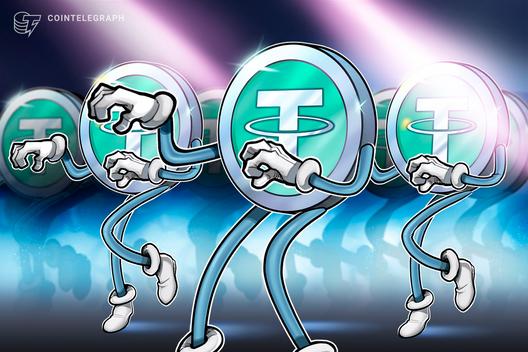Bitfinex is Constantly Printing More Tether, None Of It Has Ever Been Burned
A report indicates that no Ethereum-based Tethers have ever been burned, though new ones are constantly being printed.
A report from Flipside Crypto indicates that no Ethereum (ETH)-based Tether (USDT) tokens have ever been burned. The report has also come to a conclusion that the stablecoin is mostly used by arbitrageurs on centralized exchanges.

The Flow of USDT Within A Crypto Ecosystem. Source: Flipside Crypto.
Binance, Bitfinex & Huobi
The report states that Tether has thus far failed to fulfill its aspiration of providing stability to the DeFi space as postulated by Paolo Ardoino, Bitfinex and Tether’s CTO. Instead, its primary use case, seems to be inter-exchange arbitrage:
“It’s pretty clear that most of Tether is used on centralized exchanges, namely Huobi, Binance and Bitfinex. The constant movement back and forth between users and these exchanges reflects the fact that Tether is mostly used for arbitrage. Users can easily make a profit by buying from one exchange and selling on another for a higher price.”
Tether users pay higher Gas fees
Another interesting observation is that these arbitrageurs do not send their tokens directly from an exchange to an exchange, but first withdraw them to their wallets. The report speculates that this may be due to the desire to control the swiftness of the transactions. In other words, this way the users can opt to pay higher Gas fees in order to expedite the transfer. In the world of arbitrage, time is money.
Bening explanation
Despite Tether’s recent rise to becoming the third biggest cryptocurrency by market cap, it remains a controversial project, with numerous questions about its reserve policies. However, when it comes to the question of why none of its Ethereum-based tokens have ever been burned, there could be a simple explanation. Perhaps the company finds it more efficient to just move the tokens in and out of the treasury instead of burning and reissuing new tokens.
Cointelegraph has reached out to Tether for comment, but has not received a response in time for publication.



